This week we return to another intriguing moment in the life of Babur (1483-1530). He would go on to found the Mughal Empire in India, but at this point in his story he was in what’s today Uzbekistan. He was nineteen years old and a king without a country. He was about to get involved in some really interesting military campaigns that mostly revolved around small-scale actions of the sort where a few combatants can make all the difference: the sorts of combats that RPGs traditionally excel at! In addition to a few fights that are perfect for fictionalizing and dropping into your ongoing campaign as combat encounters, we’re going to take a look at an infamous frenemy of Babur’s: Qambar-Ali the Skinner, a professional betrayer!
This is the second post in this monthly Babur series and the ninth post in my long-running PCs on the Battlefield series.
This post is brought to you by beloved Patreon backer Robert Nichols. Thanks for helping keep the lights on! If you want to help keep this blog going alongside Robert, head over to the Patreon page – and thank you!

When we left Babur, he had just lost the city of Samarkand for the second time, this time to a bold new king named Shaybani who’d managed to consolidate the various ethnic Uzbek tribes under his own authority and was conquering the other kingdoms of Central Asia one by one. Worse for Babur, our protagonist had just lost his home base in the city of Andijan to his longstanding nemesis, a rebellious noble named Tambal. Babur had been a king since he was eleven, but now he was a king without a kingdom: no lands, few followers, and little hope of regaining either.
So he attached himself to a more powerful leader: Mahmud Khan, his mother’s half-brother. Mahmud was the most powerful of the Chagatai Mongol kings of Central Asia at the time. (For more on these kings, see last month’s post.) Babur was a sort of freelance captain in Mahmud’s service. It was a degrading position for a young man who’d been a sovereign king. But Babur had no other options. He even thought about riding off to China to start a new life, but that was a little too daunting.
Mahmud knew that he had to take on the new Uzbek king who was swallowing up Chagatai and Timurid kingdoms, but he didn’t want to go after Shaybani directly. The dude was seriously scary. Instead, Mahmud hoped to nibble away at Shaybani’s base of support. He turned his ambition against Tambal, Babur’s nemesis. Tambal and Shaybani had worked together in the past. It might be too strong to say they were allies, but ‘fair-weather friends’ is probably apt. If Mahmud could knock off Tambal, maybe that might weaken Shaybani a little. Babur loved the idea. If Tambal was taken care of, maybe Babur could take his old lands and cities back and be a king again!
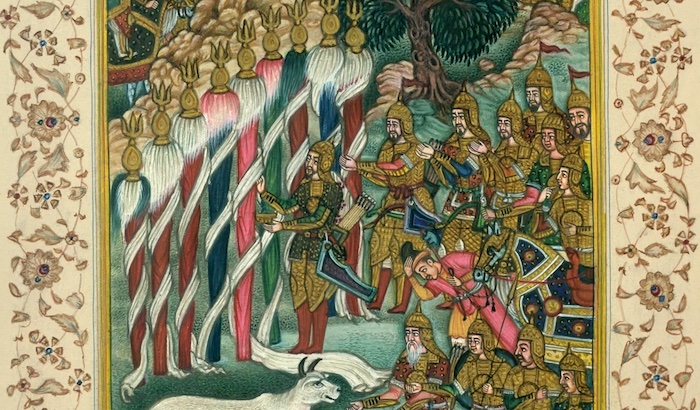
When King Mahmud Khan rode against Tambal with Babur at his side, there was another interesting freelance captain riding with them: Qambar-Ali the Skinner. Qambar-Ali was a self-made man, not a hereditary aristocrat like Babur. His sinister nickname was actually a reference to his father’s profession as an animal skinner. Babur reports that Qambar-Ali had shown excellent promise as a soldier and a battlefield commander until someone raised him to the rank of a second- or third-tier aristocrat. Then he became a braggart and slack in his duties.
I suspect Babur was bitter at Qambar-Ali. The Skinner had a habit of betraying his masters. He had no fixed abode. Like many soldiers in this time and place (and Babur!), he just attached himself to a more powerful man and provided him service in exchange for hospitality and a cut of the loot. He then shared this loot with the soldiers who attached themselves to him, and so on down the pyramid. When Qambar-Ali smelled a better opportunity elsewhere, he’d abandon his liege to go fight for somebody else – even if that other leader were currently at war with the guy he’d just been following. One of the people the Skinner often worked for had been Babur, back when Babur had been an actual king. By my count, Qambar-Ali had deserted Babur seven times in seven years, often switching sides to fight for Babur’s nemesis Tambal. I’d be amazed Babur kept taking Qambar-Ali back, but I guess when you’re in dire straits and somebody offers you the service of their hundred soldiers, there’s not much to say but “thank you, have a big cut of the treasure.”
King Mahmud’s campaign against Tambal went well at first. But Mahmud kept gifting the land they took (land that used to belong to Babur) to Mahmud’s brother Ahmad. Mahmud promised Babur that when they took Samarkand, Babur would get that city: the finest in Central Asia. But Samarkand was in Uzbek hands (not Tambal’s) and King Mahmud was not making an effort to change that. Nor did Babur believe his uncle would follow through even if they did go after Samarkand. Qambar-Ali noticed this discrepancy. He spoke frankly with Babur. “Go to a fort your troops control and bar the gate. Send a messenger to Tambal, make peace with him, then strike at your uncle and drive him out. After that, divide the districts between you and Tambal.” Babur refused to be so low. The Skinner’s response was basically, “Suit yourself, man. It’s your life.”
And that’s what I love about Qambar-Ali. It’s not just that he’d betray his boss in a heartbeat if he thought he could get a better deal. It’s that he was open and chill about it. He started from nowhere. Constant betrayals got him where he was. Why should he change? When he switched sides, he wasn’t a jerk to his old boss. It was just business. He’s terrific inspiration for a fictional NPC.
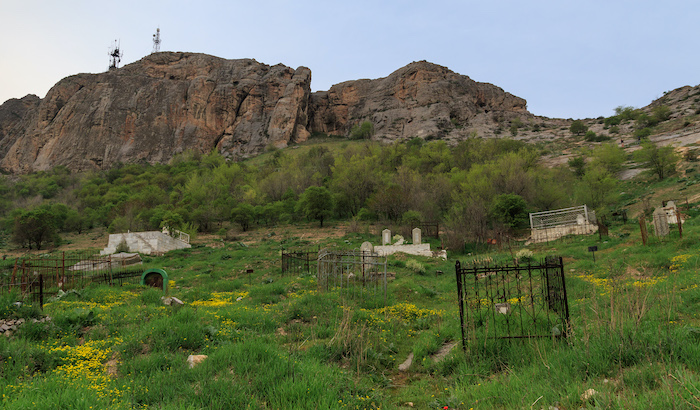
Image credit: A.Savin, WikiCommons. Released under a Free Art License.
At one point in the campaign against Tambal, Babur and Qambar-Ali found themselves near the city of Andijan, Babur’s former seat of power. Babur wondered if the city might switch sides and welcome him back, if only he could get a man inside the walls to negotiate. Qambar-Ali was chosen for this role. I don’t know why or who chose him. Maybe it was an order from King Mahmud, who suspected Babur might switch sides if he got his old city back. Maybe it was an order from Babur, who thought the expendable Qambar-Ali was a safer choice for this risky mission. Maybe it was just that Qambar-Ali was a better negotiator and thus the best person for the job. Whatever the reason, Babur, Qambar-Ali, and some soldiers snuck up to a point two miles outside Andijan. When night fell, Qambar-Ali left for the city. Babur and his soldiers waited in the dark for Qambar-Ali to return. Some men slept. Some huddled up under blankets and kept watch. It would be a long night.
Then some unfamiliar soldiers bumped into Babur’s outermost sentries. King Mahmud’s army had set a watchword. When two forces encountered one another, one side should say “Sayram”. If the other side replied “Tashkent”, both sides knew they were with Mahmud and shouldn’t fight. But the relevant sentry on Babur’s side was a librarian unaccustomed to the finer details of camp life. When the arriving soldiers called out “Sayram”, he excitedly replied “Sayram! Sayram!”, forgetting that he was supposed to reply ‘Tashkent’. So the arriving soldiers – really a band of far-ranging outriders from King Mahmud’s main force – sounded a war cry and charged Babur’s band. Sleepy and startled, most of Babur’s men ran.
But Babur charged. With only three men beside him (about the size of a party of PCs), he rushed at his mounted opponents. Babur shot one horse. It rolled over and crushed its rider. The other riders scattered. In the darkness, neither side could be sure how many soldiers they faced, nor what their disposition was. Babur and the three with him ran after their fled allies. They yelled and beat and horse-whipped them to get them back in the fight, but to no avail. So Babur and the three charged back at their regrouping adversaries, scattering them briefly once more. But even in the darkness, it soon was clear this was four against many. Babur and the three ran once again, shooting back over their shoulders to discourage pursuit.
At your table, this little skirmish is a fabulous template for a combat encounter. In the first round, the allied NPCs cut and run. Do the PCs chase after them and try to get them to turn around? Does the party charge the enemy and try to scare them into flight? Do they, like Babur, try to split the difference? Keep information limited – it is dark, after all – but dole out a little more information every round, while making clear that the enemy is likewise getting a better read on the situation as time goes on. This might be especially useful if you want to use the idea that the fight is a misunderstanding. Start by inserting small clues, but by round four or five make it very clear what’s happening. If you don’t want to make the fight a misunderstanding, then lucky PCs might scatter their enemies and rally their allies! In that case, they can probably capture the lot and turn them into a great bargaining chip! And you might play with something like this Qambar-Ali business. Did he betray the party? Is that why the PCs are suddenly attacked?
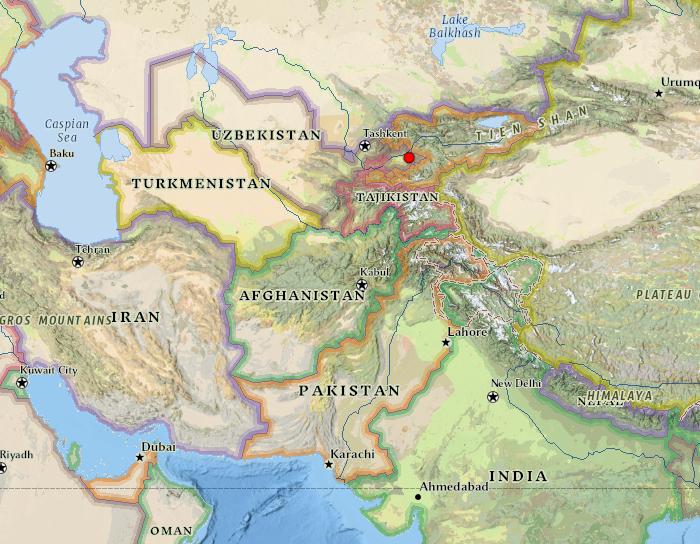
The plot to flip Andijan didn’t work, but it proved unnecessary. A week later, Babur heard rumors that Tambal’s forces had broken up. Babur took his followers – a few hundred at this point – and rode for Andijan. The city was being held by one of Tambal’s relatives, one Sultan Muhammad the Butterfly. The Butterfly’s troops were outside the city foraging for food. Many of Babur’s troops were also foraging when the two forces unexpectedly bumped into each another. As in the night encounter, Babur didn’t wait to form up his troops but charged straightaway at the enemy. Though the forces were roughly equal in size, Babur’s sudden arrival and the disarray of the enemy meant that “there was not so much fighting as the crossing of a few swords”. Babur’s soldiers scattered the Butterfly’s and made it to the gate of Andijan’s fort.
Now Babur had to make a decision. It was getting dark. The fort was almost entirely undefended. Should he attack now, while the fort was almost defenseless? If he got inside, his soldiers would be fighting in the dark in what was, for many of them, an unfamiliar building. Many would die unnecessarily. Instead, Babur’s lieutenants urged caution. Wait until morning and negotiate. What could the fort do but surrender anyway? Babur acquiesced to these older and more experienced men. They camped near Andijan.
At midnight, Tambal appeared out of nowhere with a few hundred soldiers and attacked Babur’s camp. Babur later admitted that camping in a place where he could be unexpectedly assailed was a mistake born of youth and inexperience. Qambar-Ali the Skinner was one of the first to notice the incoming troops. He hopped on his horse and rode away shouting warnings to the camp about the coming attack. The next time Babur saw him, he’d be working for Tambal.
Again, Babur charged the enemy, this time with maybe ten or fifteen men. They came upon Tambal’s center, where Tambal was himself. With Tambal were 100 soldiers, but they were kind of sidling on their horses, unsure if they wanted to attack. By this point Babur was once more down to only three companions, but they must have been awfully scary in the dark. Babur fired an arrow at Tambal, missed, reached into his quiver for another, but came out with a bow-repair tool. In the time it took him to stick it back in and grab an actual arrow, he could otherwise have fired two or three more times. Babur and Tambal crashed together. Both were on horseback. Tambal was in mail. Babur was unarmored. Someone shot Babur in the leg. Tambal brought down on Babur’s helmet a great sword that had once belonged to Babur himself! Babur’s sword was still in its scabbard. Only now did Babur realize what a pickle he was in. He turned to ride off and Tambal chopped again, this time destroying Babur’s quiver. Babur and his three surviving companions fled across a river. If the young king had attacked Andijan when he’d first come to the fort, he’d have surely been victorious. Instead he was routed and shamed.

Image credit: Slava Myronov. Released under a CC BY 2.0 license.
At your table, you might have a lot of fun with the tough decision of whether to assault the fort in the darkness or wait until morning to negotiate a surrender. If you attack the fort in the dark, a bunch of your people will definitely die unnecessarily. If you wait until morning, that can probably be avoided – but there is a small chance that an enemy army will catch you out in the open. I feel like there’s a clear right answer, but it’s still a damned unpleasant choice to make.
As for the final confrontation with Tambal, most of its details are the same good gameable stuff as the earlier combats: surprise, darkness, limited information, and heroic charges whose success hinges on whether they can scare the enemy enough to take flight before anyone realizes how few people are charging. But there’s also the one-on-one showdown between Babur and his nemesis! I expect Babur probably played this one up in his memoirs to make it a better story. But it is a good story, and it’s a good reminder of how much fun these sorts of showdowns can be.
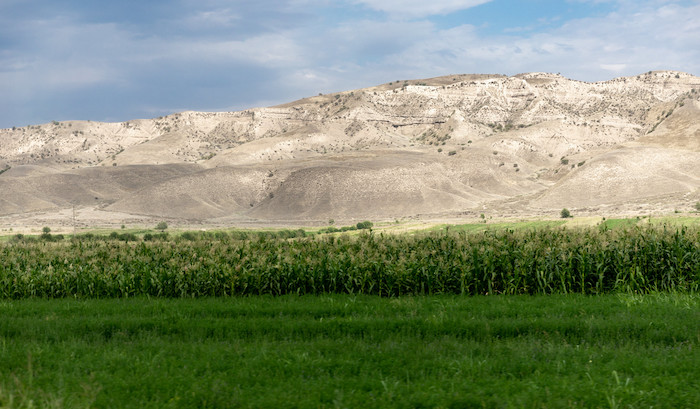
The whole expedition against Tambal came to nothing. Tambal reached out to his fair-weather friend, the Uzbek King Shaybani. Shaybani agreed to come help. As soon as word reached King Mahmud Khan, Babur’s uncle pulled up stakes and ran back to his lands. Qambar-Ali joined Tambal’s army, though not for long. At the end of the expedition, while his allies retreated, Babur made one more youthful mistake. He forgot to close the gate of the fort he was holed up in. Tambal was once again nearer than expected. He rushed into Babur’s fort largely unopposed. After a desperate battle, Babur got away with only seven men.
Babur’s uncle was soon defeated by King Shaybani and the Uzbeks. Tambal tried some funny business and Shaybani killed him for it. Uzbek dominion over Babur’s lands was complete. Babur was destitute and barred from his homeland. He wandered south across the Hindu Kush to Kabul. There, his luck would change in a spectacular fashion. But that’s a story for next month.
Until then, come on back for more of my regular weekly content!

What follows is a pedantic tangent about the names and titles I’m using in this Babur series. You were warned.
We’re dealing with a time and place where the distinction between name and title is fuzzy. Look at King Mahmud Khan. ‘Khan’ signified rank and authority among the Chagatai Mongols, but it seems to also be an actual part of Mahmud Khan’s name. Culture marches ever on; titles become names (Khan in South Asia), names become titles (Caesar/Kaiser/Tsar), and sometimes things are somewhere in between. The same is true of another of Babur’s uncles from last month, Sultan Mahmud Mirza. The function that ‘Khan’ served among the Chagatai Mongols was approximated by ‘Mirza’ among the Timurids. And Qambar-Ali’s name might be more appropriately rendered as Qambar-Ali Beg, with ‘Beg’ serving both as a name and as a title (I think). As for the title ‘Sultan’, it seems like everybody and his brother in Babur’s autobiography gets to put ‘Sultan’ at the front of his name, and I’m not sure to what extent it’s a title and to what extent it’s a name in this specific cultural context. Sometimes I chose to replace it with ‘King’ (at least when the dude involved was genuinely a sovereign), but I didn’t always do it. Usually I just did it to disambiguate two dudes with similar names.
I have to make these decisions all the time on the blog, and I usually try to go with clarity over accuracy. So if you’re ever wondering why I’m referring to someone in a way you find odd, I’m probably doing it to make it easier to distinguish between, say, Charles of Spain and Charles of Austria, both of whom inconveniently decided to appear in the same post.
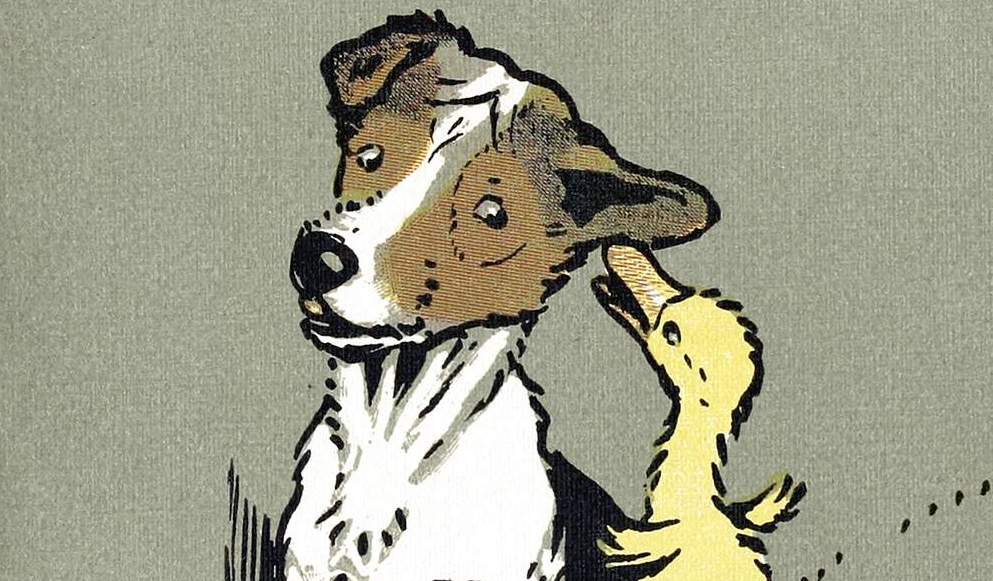
Rather get content like this in podcast form? Every two months I appear on the Dicegeeks podcast to talk about three recent posts. Here’s a link to my most recent episode!






